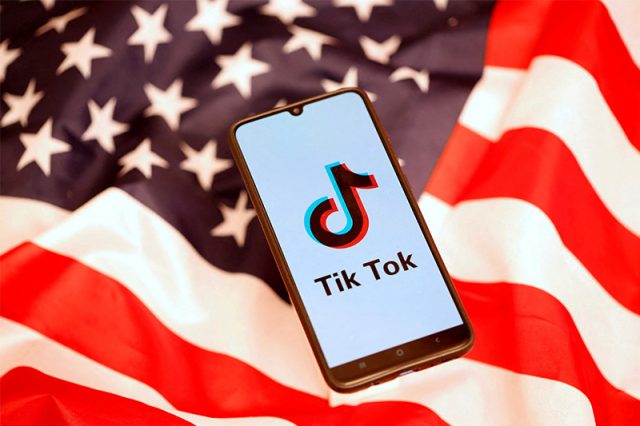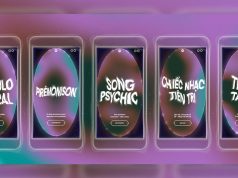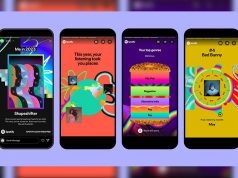
For much of the year, TikTok has been on the defensive.
On March 13, 2024, the House of Representatives voted to approve a bill that would force the short-form video app to be sold off from its Chinese parent company to non-Chinese owners or face a ban in the U.S. The Senate will still have to vote on the legislation, which received broad bipartisan support due to beliefs that TikTok creates risks to national security.
Meanwhile, Universal Music Group, one of the biggest record labels in the world, stopped licensing its music to TikTok at the end of January 2024. Since then, songs by Taylor Swift, Billie Eilish and scores of other artists can no longer be used on the platform, while millions of TikTok videos that had incorporated tracks from Universal artists were muted.
Universal Music Group has an estimated 37.5% market share in the music industry, so its songs likely make up a significant portion of the clips used on TikTok prior to the ban.
The record label claims its artists account for a majority of songs on the platform, and therefore, Universal artists should be better compensated and have guardrails against the harmful effects of artificial intelligence. TikTok, in its response, has said that it has come to amicable agreements with other record labels and that Universal is being unreasonable to the detriment of the artists it seeks to protect.
In the end, both companies simply want to have a larger piece of the pie.
But each of their interests, I believe, should be secondary to the creators that sustain them. Over the past two decades, as the internet and streaming have disrupted the music industry, wage gains for music professionals have been far more pronounced at the top of the income ladder. However, most composers and performers have seen their income and employment prospects dwindle.
TikTok has become a beacon in an otherwise dismal digital streaming landscape, and while musicians increasingly need TikTok, TikTok also needs music.
Gains have gone to the top
My research explores the impact of technology on music professionals in the internet era.
Technology was supposed to democratize the music industry, allowing more artists to more easily gain access to new markets.
Artists no longer needed a record deal to record their music and get it out to the world. They can record music cheaply using their computers, upload it to YouTube, Spotify, BandCamp, SoundCloud, Tidal or any number of platforms for music distribution, then promote their work on social media to build their audience.
But this didn’t lead to more music professionals making a living off their work.
That’s the conclusion I came to by analyzing data from the Bureau of Labor Statistics, which includes two categories of music professionals: performers, who record songs and put on live shows, and composers, which includes musicians who conduct performances or create original works of music but do not necessarily perform that music. A performer would be someone like Dua Lipa, whereas a composer might be someone who is credited for writing a track on Dua Lipa’s album.
From 1999 to 2022, composers saw a strong 85.3% boost in employment, reflecting a gain of 5,380 jobs. This alone suggests that technology has helped music professionals gain employment.
However, when we look at performers – whose employment numbers shrank by 14,690, or 31.6% – it tells a different story.
Put together, the total number of music professionals fell by 9,310 people from 1999 to 2022, reflecting a 17.6% drop. All the free promotion of social media and the lowered barriers to entry that the internet provided were not enough to sustain artists’ livelihoods.
Wages tell a more complex story.
While more people have earned a living from composing music since 1999, their wage gains paled in comparison to that of performers. In short, there are fewer people working as performers now, but those who can cut it are making more money.
This would seem to show that technology has helped most working music professionals.
However, there were outsize gains among the top 10% of music professionals – so the bulk of the rewards from technological advancement went to those at the top. The average wage gain for music professions rises as you climb the income ladder.
Artists first, or artists last?
Artists, then, are having an increasingly difficult time making a living, especially independent artists who comprise the lower income brackets.
The promises of technology are often overblown; in the case of music, the winners and losers have ended up mirroring broader societal inequalities.
Even as technology hasn’t deliver what it promised to artists, artists are increasingly reliant on technology to make a living.
They’ve increasingly turned to TikTok to do so.
TikTok, with more than a billion active users worldwide, has revolutionized music promotion and discovery. Unlike traditional social media, TikTok’s unique format, algorithm-driven content discovery and collaborative features supposedly democratize fame.
Lesser-known artists can go viral, shaping the Billboard charts and propelling songs into the mainstream. Lil Nas X rose to fame on TikTok with “Old Town Road” and promptly signed on to Columbia Records. Oliver Anthony, the creator of the populist hit “Rich Men North Of Richmond,” went viral in summer 2023, eventually reaching the No. 1 spot on the Billboard Hot 100.
In this era of virality, TikTok has become an essential promotional tool for musicians and record labels alike, transcending the boundaries of conventional social platforms.
By cutting ties with TikTok, Universal Music Group is not only depriving its artists of these opportunities, but it’s also alienating a large and loyal fan base who use TikTok to interact with their favorite artists and their songs.
TikTok also loses in this situation, since music is such a critical part of its audiovisual experience. In a 2023 test conducted by TikTok, the platform limited the music that some users in Australia could use in posts. For three straight weeks, the number of users, along with the time users spent on the app, declined.
Both parties say they want to protect the artists, with TikTok arguing that it has reached “artist-first agreements with every other label” and that “Universal’s self-serving actions are not in the best interests of artists, songwriters, and fans.”
TikTok is banking on the perception that platforms provide opportunities for cultural producers by saying that the power of the platform lies in it being “a free promotional and discovery vehicle” for artists. Some members of Congress who opposed the TikTok ban cited the platform’s utility for maintaining creators’ livelihoods, so this is a common refrain.
In response, Universal Music Group has declared that TikTok has an “outdated view” of the modern music business due to the app’s insistence that it provides exposure for artists – and that this exposure is good enough. As my research shows, this free promotion has not grown the ranks of artists who can make a living off music.
TikTok still holds out hope that it can reach “an equitable agreement with Universal Music Group,” but the record label hasn’t budged.
The two media companies say they want to protect artists. But I believe the artists are the ones who will end up hurt the most in a divorce.
In other words, TikTok and Universal need to stay together for the kids.![]()
Ediz Ozelkan, Lecturer of Media Studies, University of Colorado Boulder. This article is republished from The Conversation under a Creative Commons license. Read the original article.









